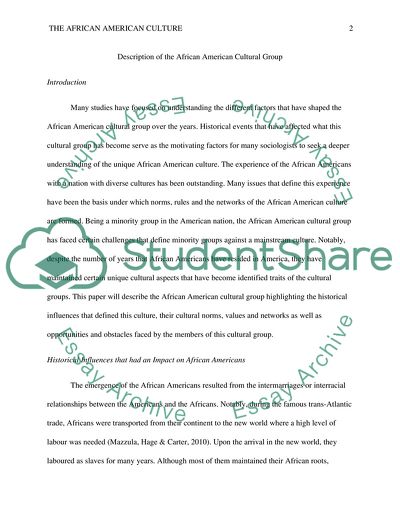Cite this document
(African American Culture Description Coursework Example | Topics and Well Written Essays - 1500 words, n.d.)
African American Culture Description Coursework Example | Topics and Well Written Essays - 1500 words. https://studentshare.org/culture/1833253-culture-in-context
African American Culture Description Coursework Example | Topics and Well Written Essays - 1500 words. https://studentshare.org/culture/1833253-culture-in-context
(African American Culture Description Coursework Example | Topics and Well Written Essays - 1500 Words)
African American Culture Description Coursework Example | Topics and Well Written Essays - 1500 Words. https://studentshare.org/culture/1833253-culture-in-context.
African American Culture Description Coursework Example | Topics and Well Written Essays - 1500 Words. https://studentshare.org/culture/1833253-culture-in-context.
“African American Culture Description Coursework Example | Topics and Well Written Essays - 1500 Words”. https://studentshare.org/culture/1833253-culture-in-context.


